Michael Powell | 2hr 3min

The fight that the western world puts up again Nazi Germany in 49th Parallel is not led by individual heroes or organised military units. It takes a communal sense of justice, democracy, and moral fortitude among everyday civilians to not only pick off the six Nazi submariners who have been stranded in Canada, but to also thoroughly undermine the narrow-minded, hateful ideology which guides their actions. With the United States still being considered neutral territory in 1941, the Niagara Falls border crossing is their destination, and so all Lieutenant Hirth and his men need to do is keep their heads down for the journey south. If these fugitives are to successfully find sanctuary though, then it isn’t just a victory for them – it is an alarming affirmation of fascist indomitability.
The fact that this is one of the few Michael Powell films to be shot in black-and-white rather than Technicolor does not mean he is any less confident with his chosen aesthetic. While other works of his such as Black Narcissus and The Red Shoes possess a similarly haunting wickedness, they are also far more fantastical than 49th Parallel, whose grim severity simply would not be suited to the same stylistic vibrance. In small scenes of contained drama, cinematographer Freddie Young instead captures Powell’s rich blocking and rigorous military formations with a deep focus lens, remarkably uninfluenced by his contemporary Orson Welles who was making Citizen Kane at the exact same time.
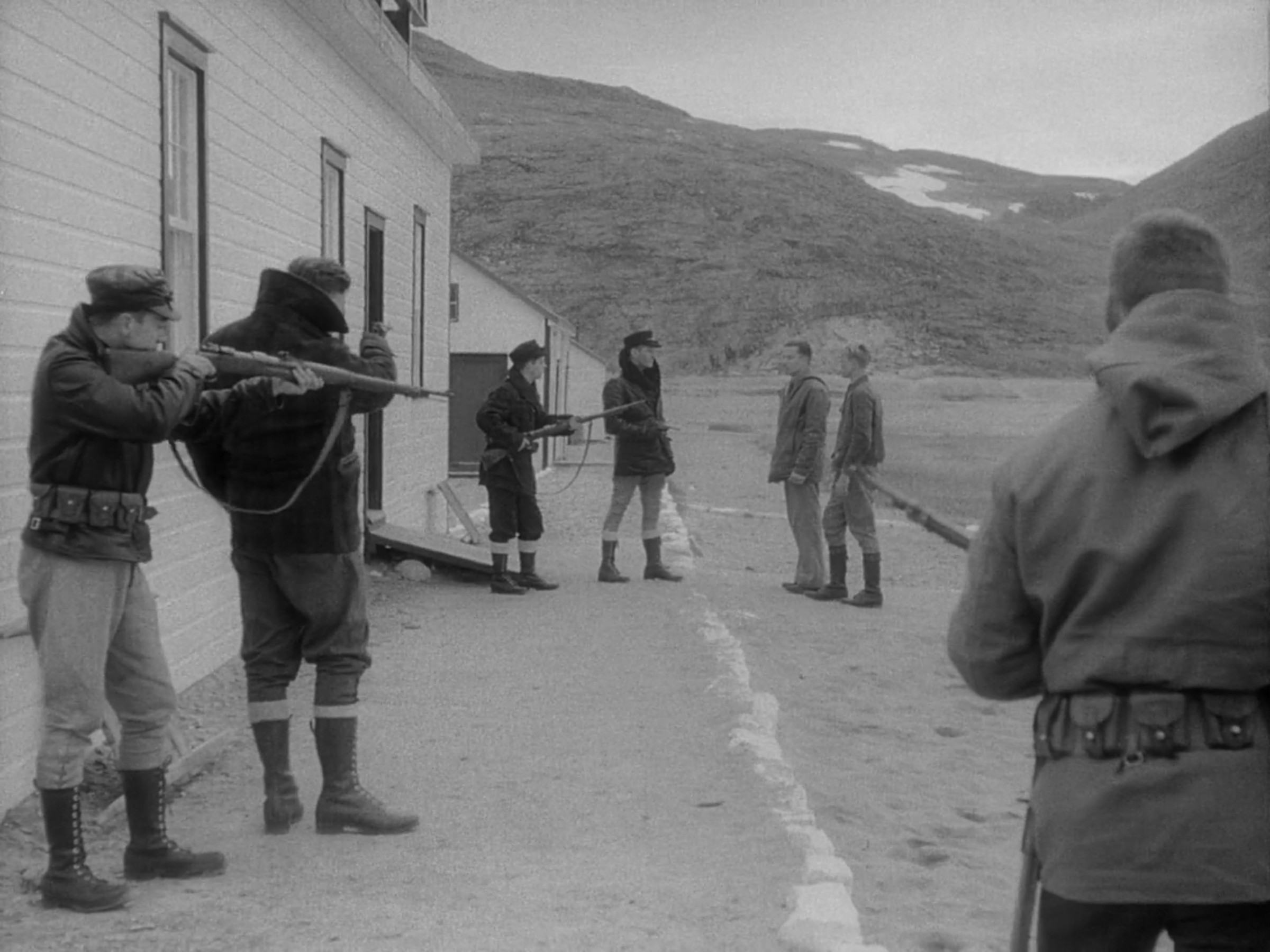
Even more impressive is the grand visual scale which Powell quite comfortably inhabits, executing spectacular stunts of exploding sea vessels and crashing planes, and flying his camera over vast coastlines in extraordinary aerial shots. When the Nazi fugitives make it to Winnipeg, he confronts them with a rainy city of neon signs and busy streets where bulletins call for their capture, though it is more often the expansive alpine terrains where these ill-prepared men are mentally worn down. Dressed in suits and fine shoes, they traverse sprawling pine forests, hike up barren mountain ranges, and follow raging rivers in the hope of finding some sort of civilisation again, yet the North American wilderness is not kind to these foreigners. With long shots as sweeping as these, it wouldn’t be a stretch to say that Young’s work here thoroughly prepared him for his incredible landscape photography in Lawrence of Arabia twenty-one years later, especially since the editor on 49th Parallel is David Lean himself.
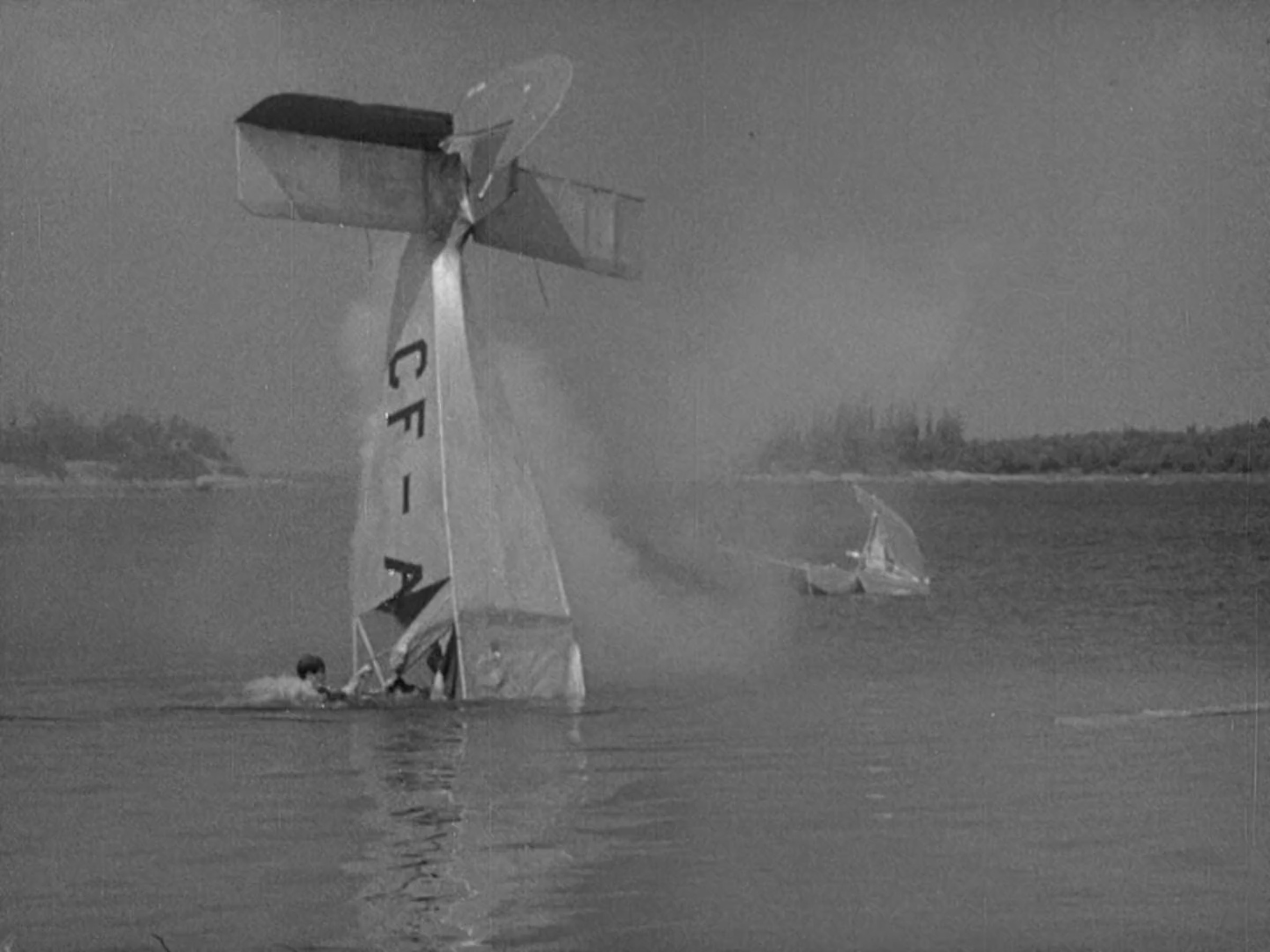
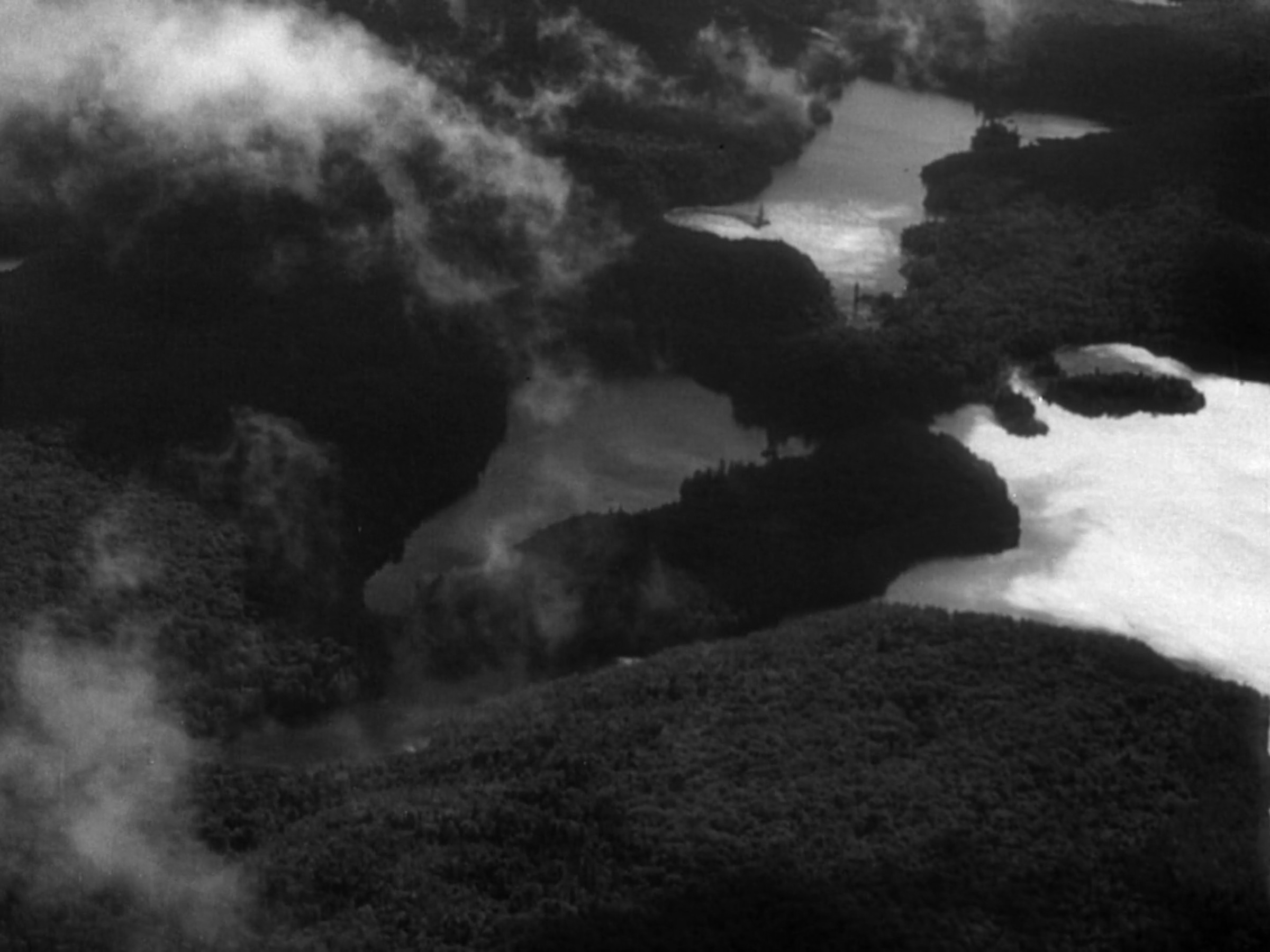
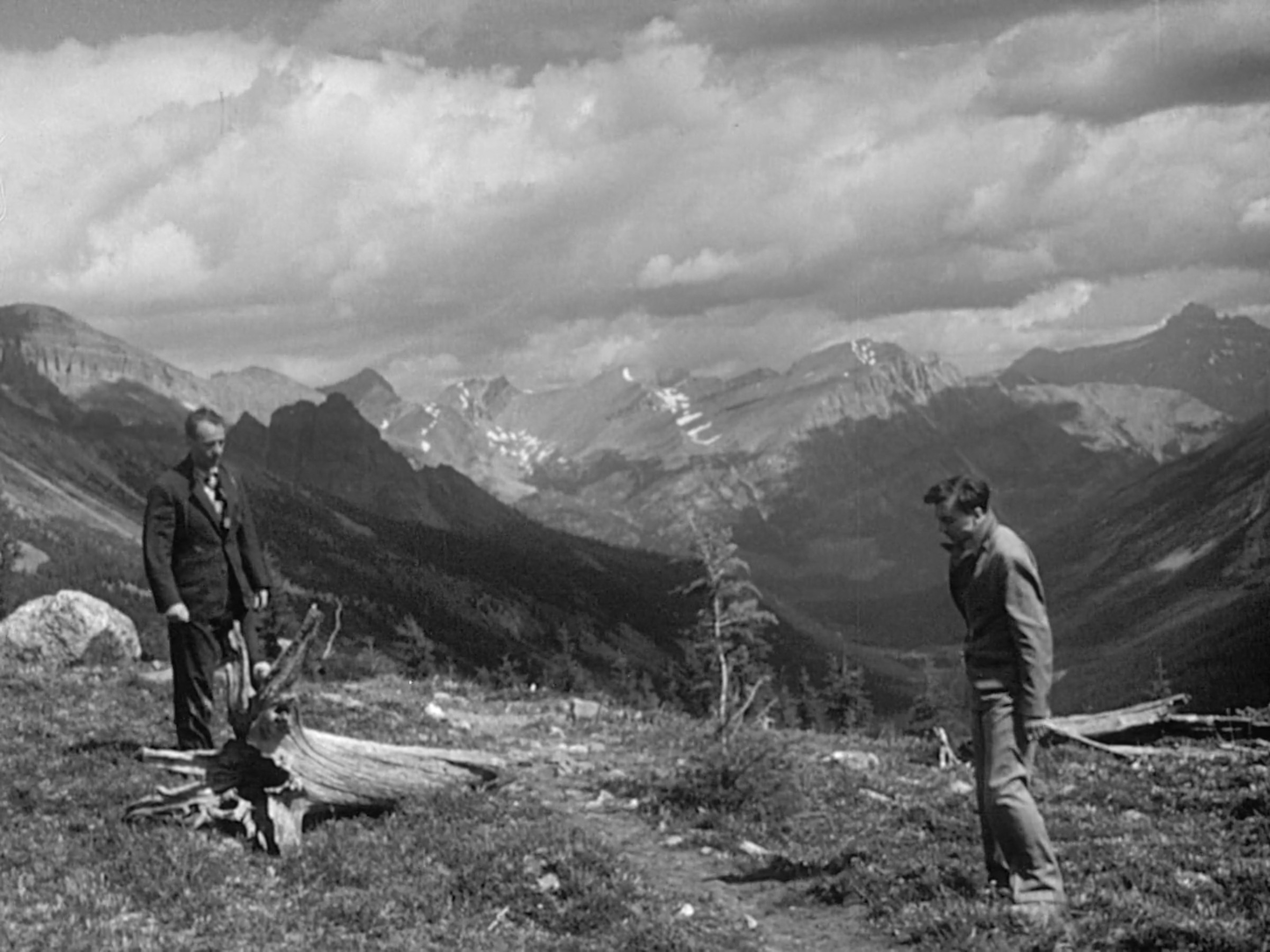
Underscoring the incongruency of the Nazis’ survival in Canada even more than the natural environment though is the people they encounter, each of whom possess some liberal value which they view as weakness through their dogmatic perspectives. Powell gathers an impressive cast in his ensemble here, including Laurence Olivier as a jovial trapper whose optimistic trust sees him shot and killed, and Leslie Howard as an English novelist who camps by a lake to mentally separate himself from the war. He is thoughtful and sensitive, shrewdly analysing the repetitive rhetoric used by fascists to manipulate the minds of susceptible listeners, and yet Hirth is nevertheless quick to label him a soft, degenerate coward who would rather talk than fight.
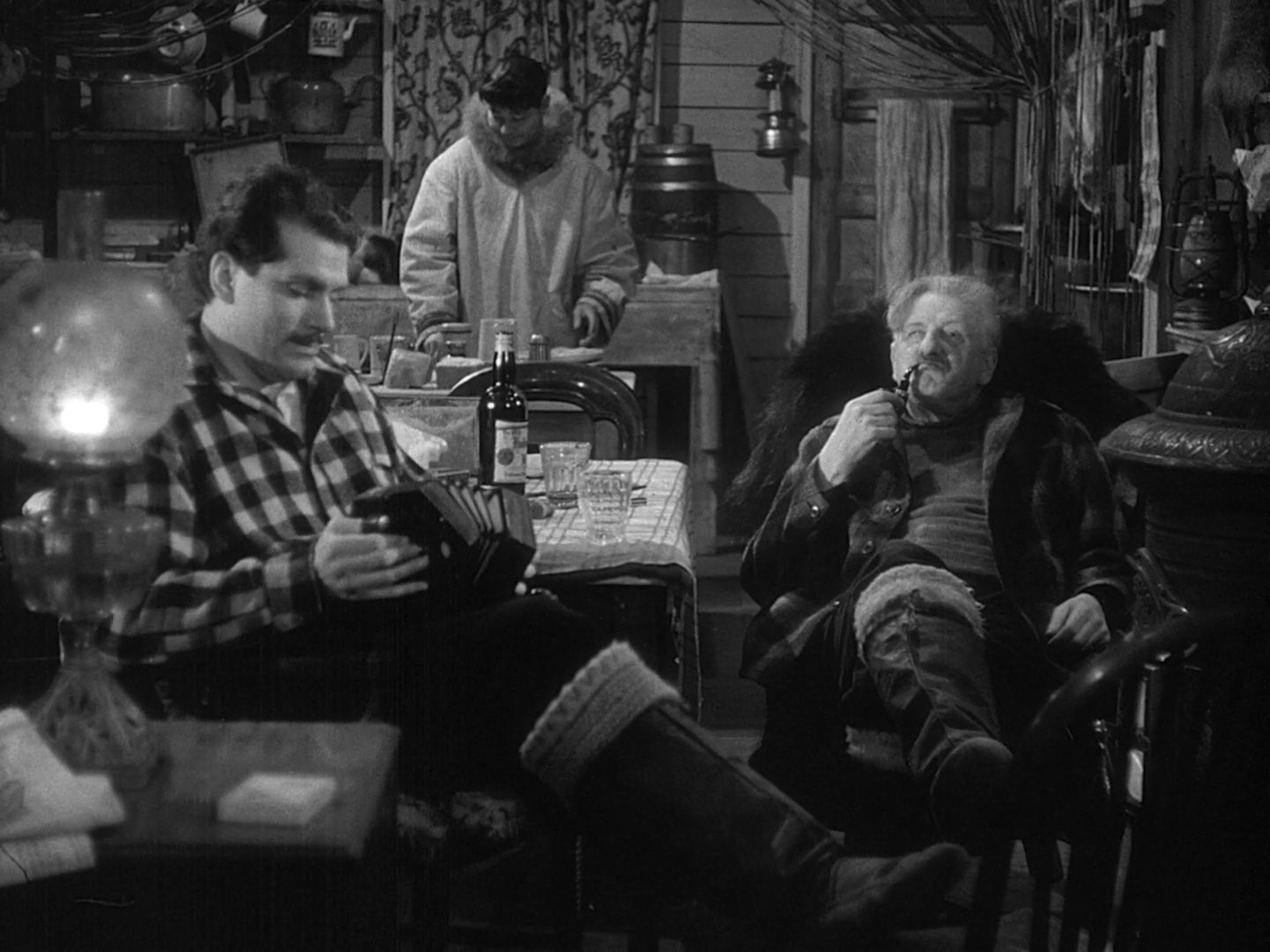
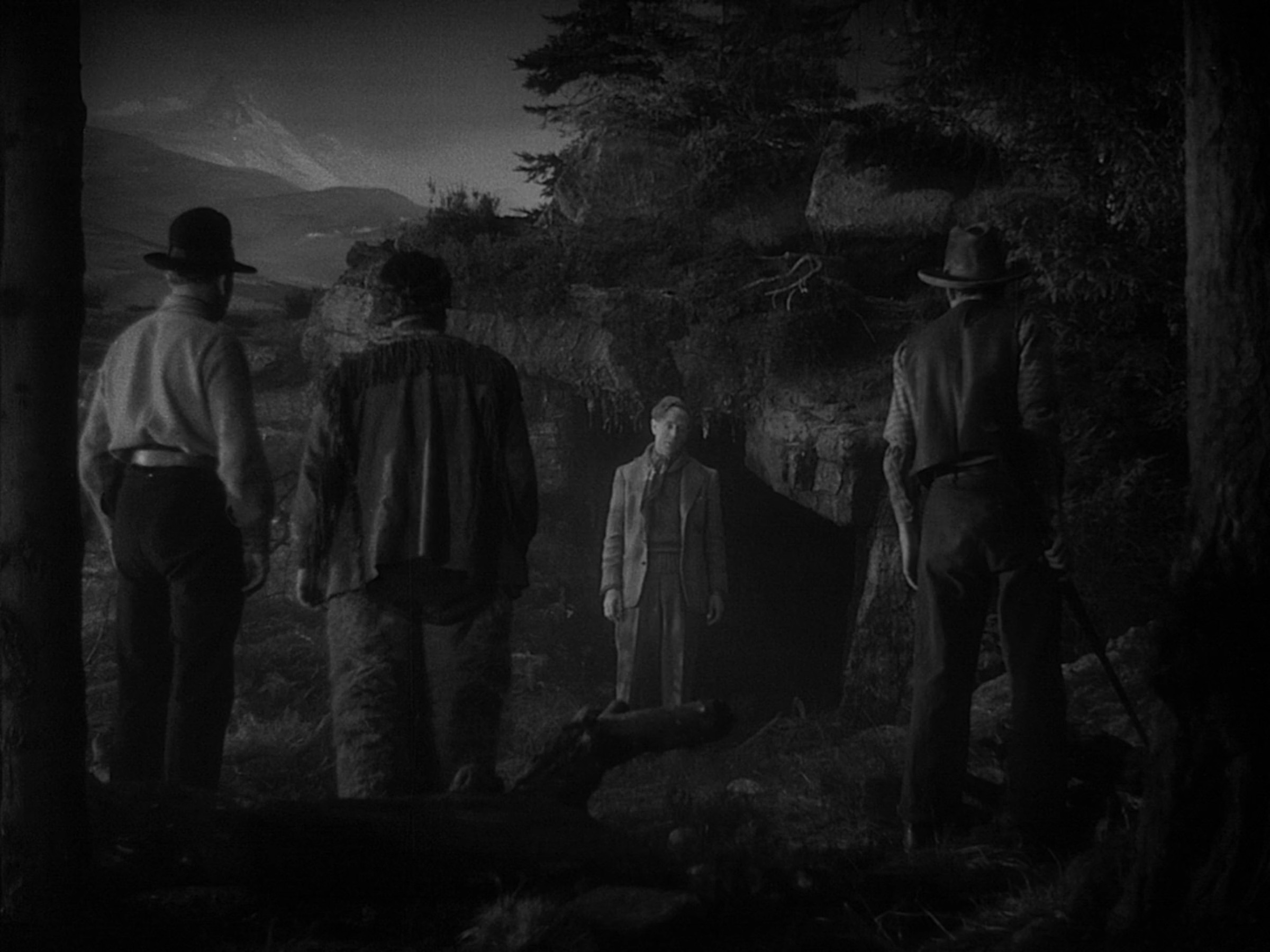
49th Parallel may be a piece of wartime propaganda, but it is tough to deny the astuteness of its humanitarian arguments, especially when the fugitives are welcomed into a Hutterite farming community that houses German refugees. Anton Walbrook plays their leader Peter, an amiable man who views himself as a servant of his people, rather than the other way round – a shocking discovery for these fascists who are so used to heiling their Führer. Their blind belief that this community is a cover for Nazi sympathisers would almost be comical if Hirth’s impassioned speech inviting them to join him wasn’t met with such damning, disgusted silence, followed by a solemn response from Peter that further reveals how distant these humble Christians are from the monsters of their homeland.
“You think we hate you, but we don’t. It is against our faith to hate. We only hate the power of evil that is spreading over the world. You and your Hitler are like the microbes of some filthy disease, filled with a longing to multiply yourselves until you destroy everything healthy in the world. No. We are not your brothers.”
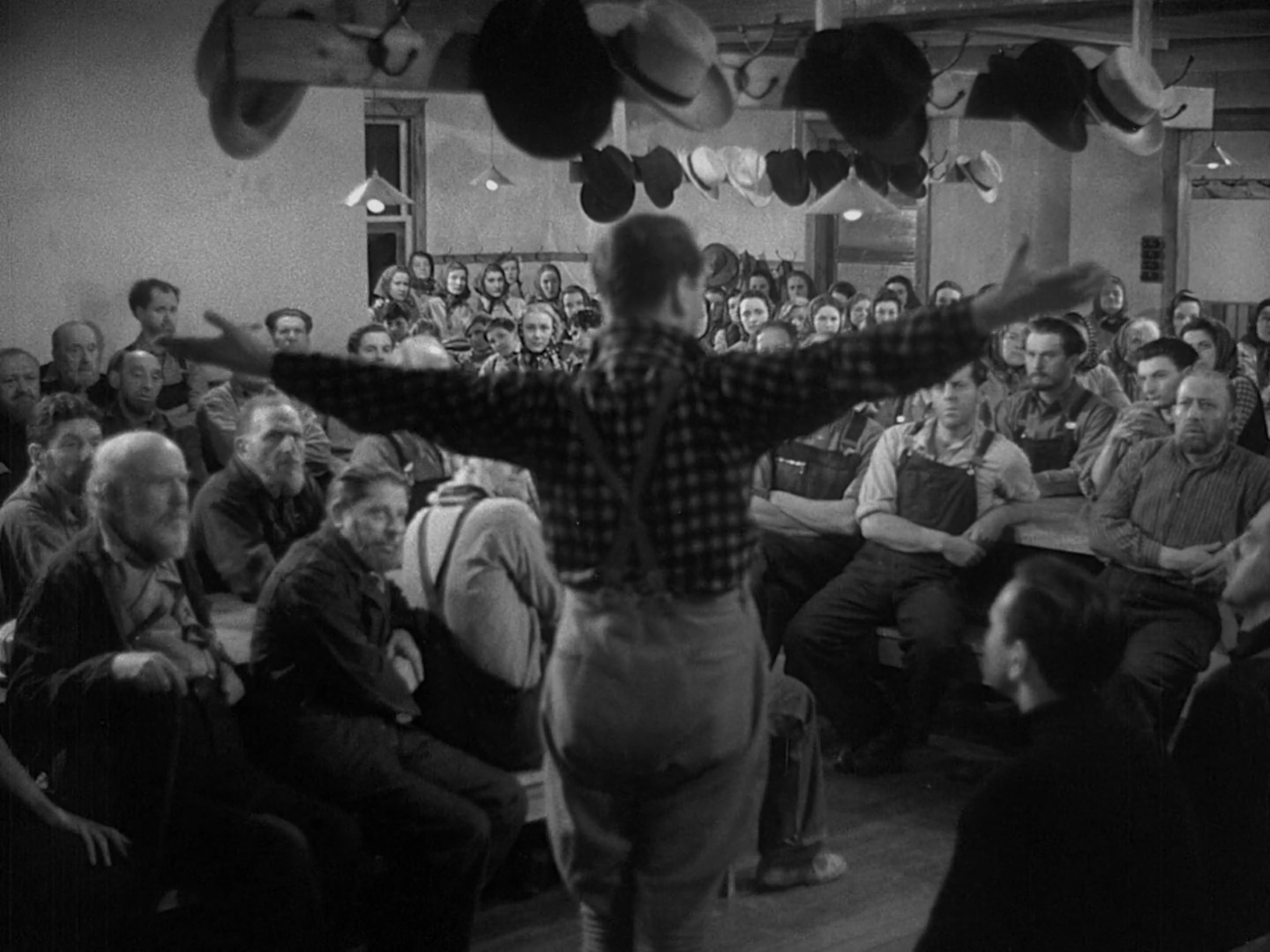
It is not these words alone which moves one of the fugitives to ally himself with the Hutterites, but Vogel’s brief experience of working as their baker and finding heartfelt acceptance among their ranks is enough for him to decide to stay permanently. We can only imagine what his reformation might have looked like had he been allowed to follow his own enlightened path though, as Hirth coldly executes him for treachery before departing with the remaining party.
The readiness of Nazis to abandon their own companions is plain to see all throughout Powell’s narrative, defining its very structure as their group gradually diminishes one-by-one in a similar fashion to Agatha Christie’s murder mystery And Then There Were None. Through plane accidents, executions, arrests, and physical assaults, each fugitive is stopped in their tracks, while the others continue their relentless march south to the Canada-United States border where they might finally be safe. The danger around them increases tenfold once they start drawing attention in the media, but so too does the subsequent news from back home praising them as national heroes spur them on, right up until Hirth is left as the sole survivor struggling to the finish line.
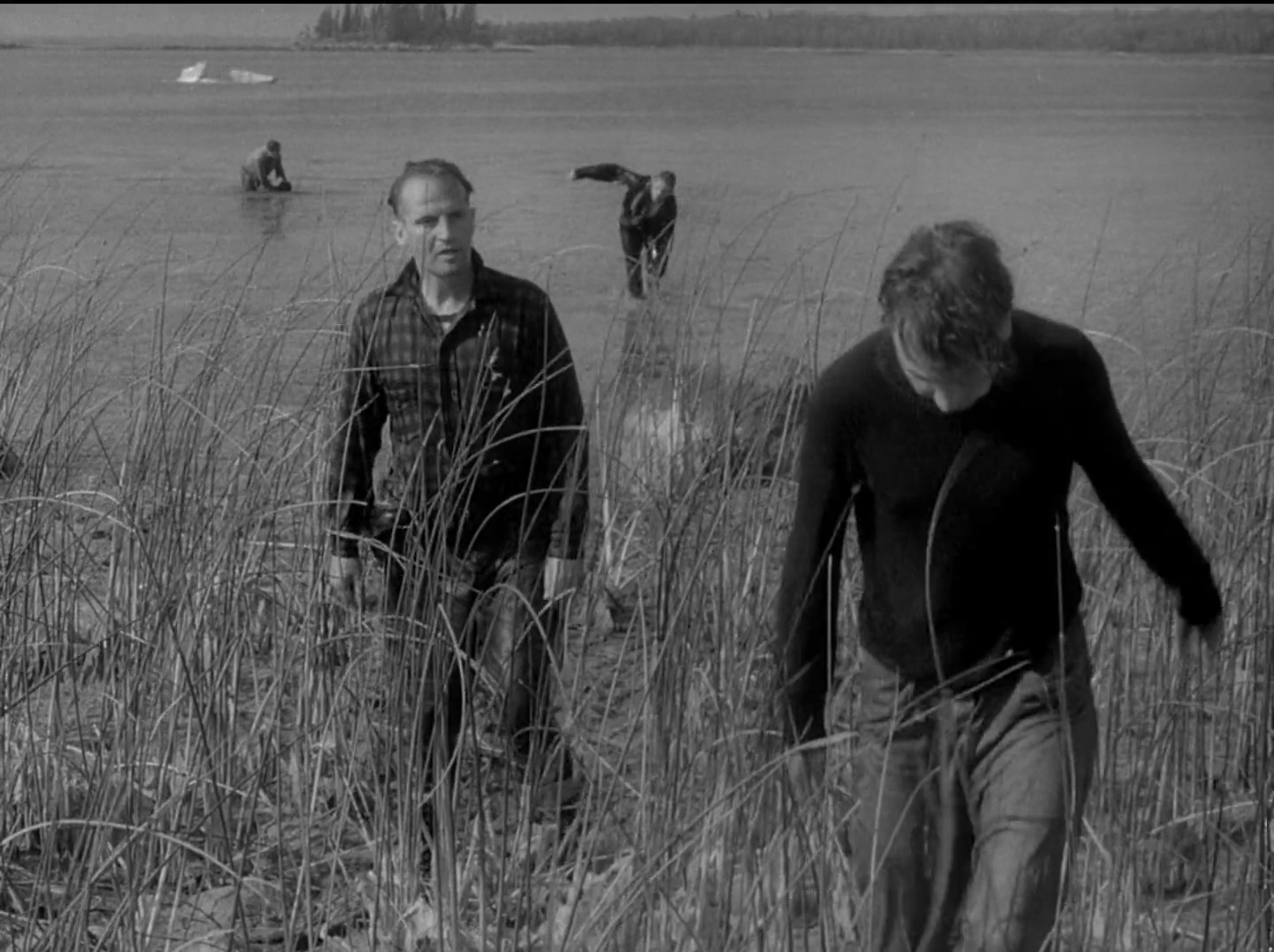
It is there on a freight train heading past Niagara Falls into New York that the German lieutenant encounters Andy, another stowaway similarly keeping a low profile due to his desertion of the Canadian army. “You’re a deserter because you have a legitimate grievance against your democratic government,” Hirth acclaims, but this disloyal soldier does not take so kindly to the Nazi once he learns of his true identity.
“You can’t even begin to understand democracy. We own the right to be fed up with anything we damn please and say so out loud when we feel like it. And when things go wrong, we can take it. We can dish it out too.”
True to Andy’s patriotic sentiments, it is exactly Hirth’s underestimation of the power that democracy vests in ordinary citizens which brings about his downfall. That the deciding moment of his victory rests on the shoulders of a lowly Canadian deserter and a US Customs inspector makes for a tremendous formal pay-off to this narrative, which has consistently underscored the ability of trappers, farmers, and writers alike to weaken fascism’s forward advance. Sacrifices must be made in the struggle, and yet Powell’s wartime fable effectively cloaks these in glory, vigorously rousing the then-neutral United States of 1941 to take up arms against Nazi Germany with egalitarian pride and honour.
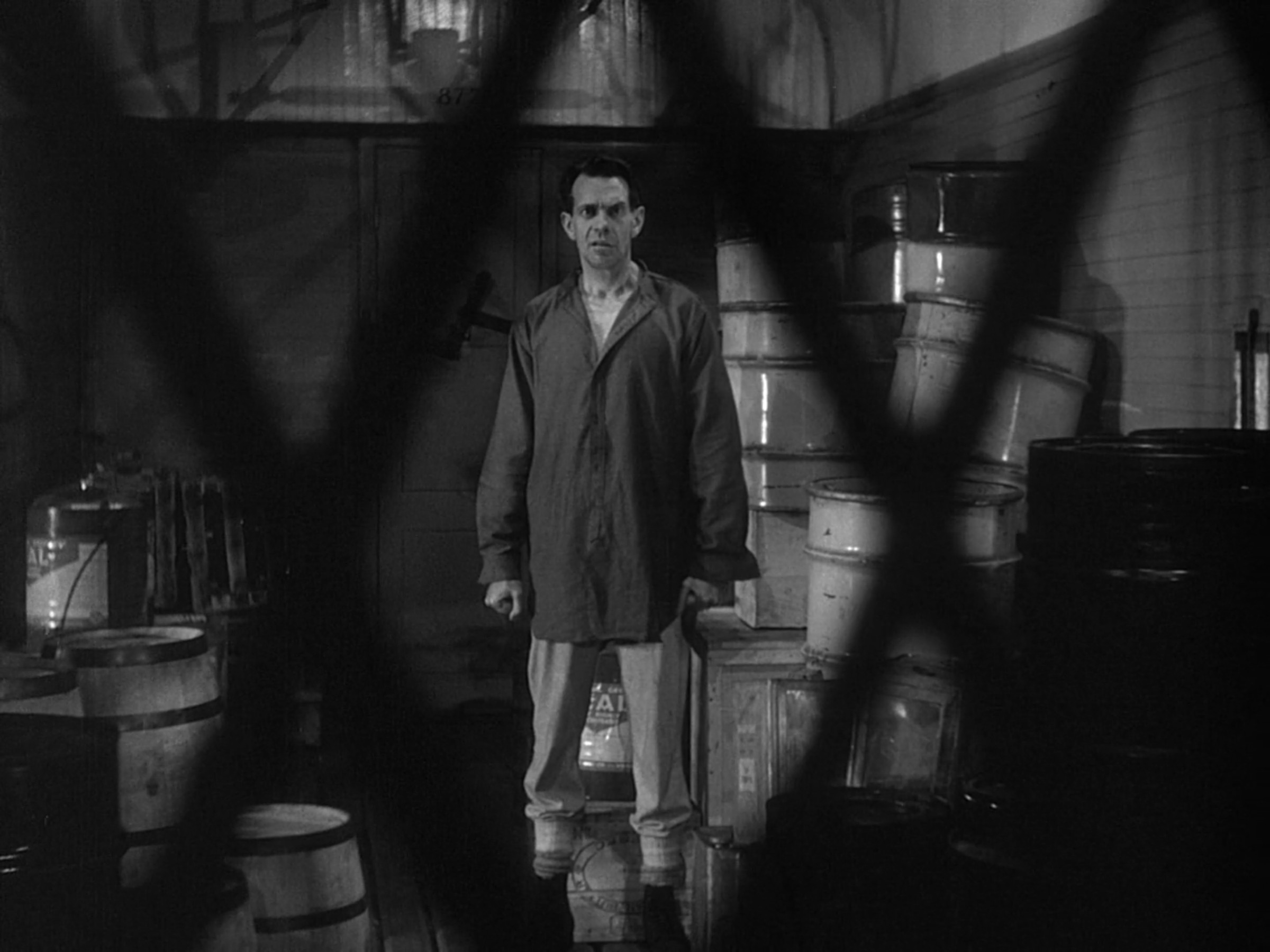
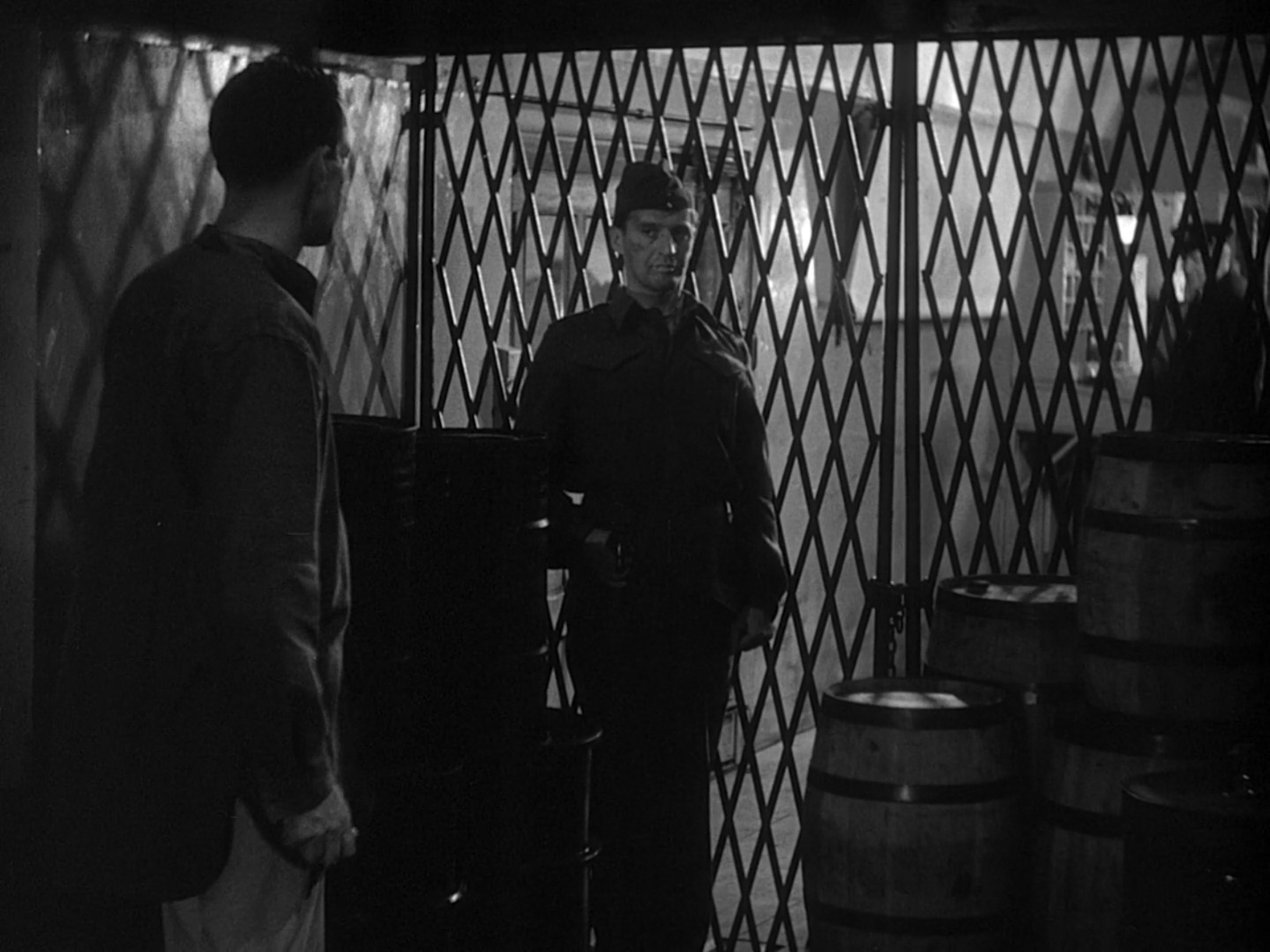
49th Parallel is currently streaming on The Criterion Channel, and is available to purchase on Amazon.

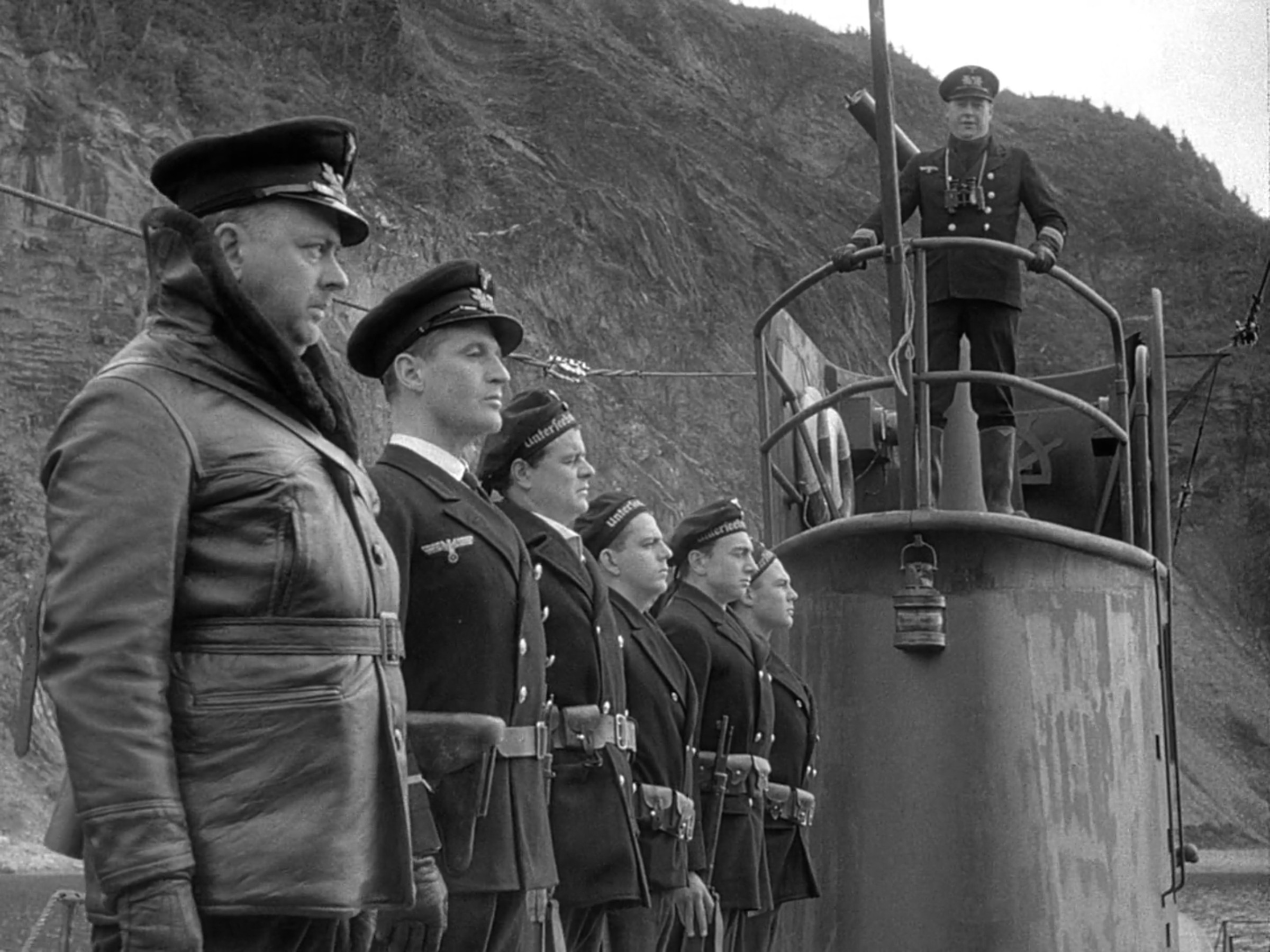
Pingback: The 50 Best Cinematographers of All Time – Scene by Green